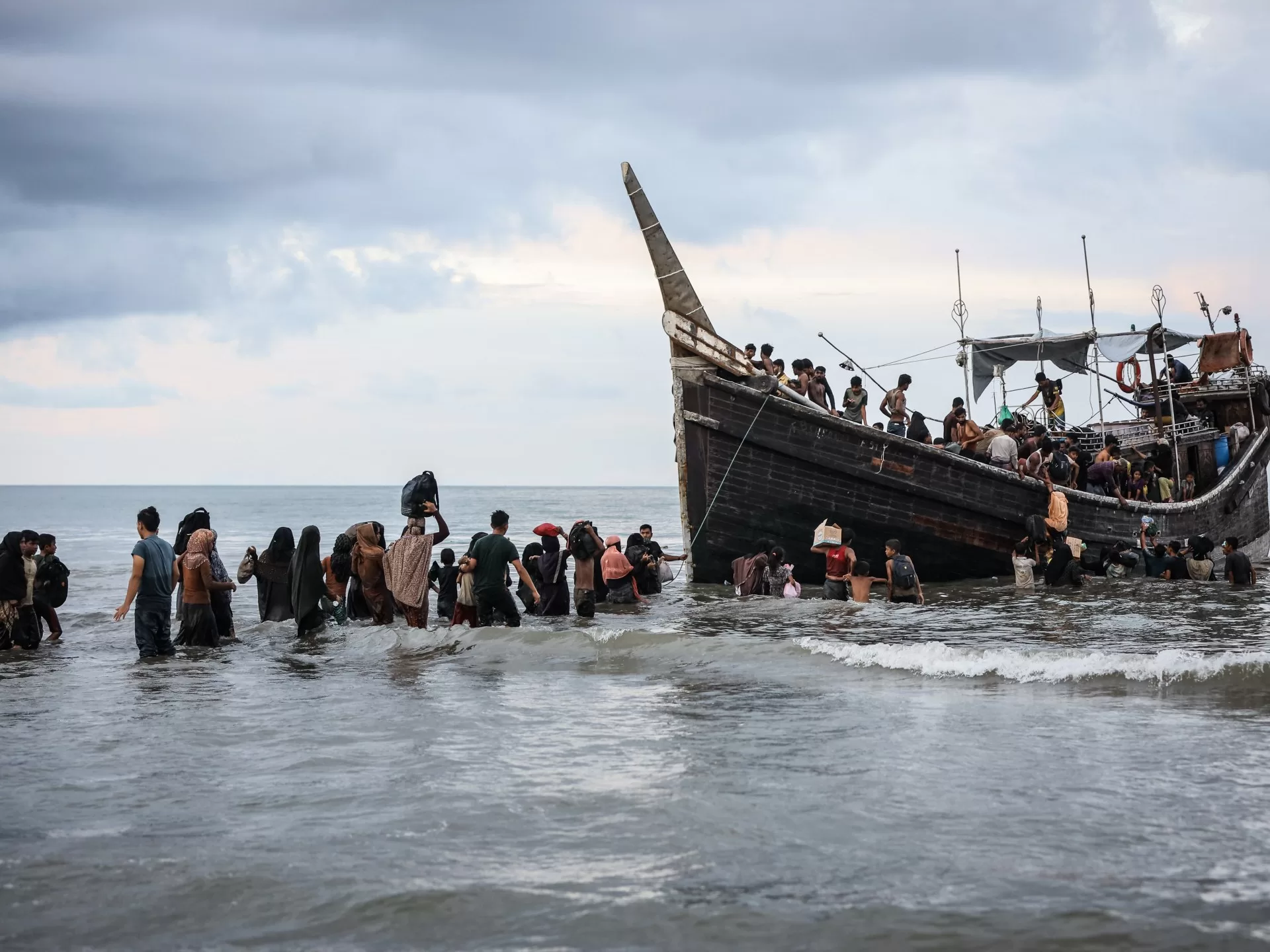People from the mostly Muslim Myanmar minority continue to make perilous journeys across the sea in search of safety.
The UN High Commissioner for Refugees (UNHCR) said nearly 4,500 Rohingya people took boats across the Andaman Sea and Bay of Bengal in 2023, fleeing crowded refugee camps in Bangladesh or persecution in their native Myanmar.
“Estimates show one Rohingya was reported to have died or gone missing for every eight people attempting the journey in 2023,” UNHCR spokesperson Matthew Saltmarsh said in a statement. “This makes the Andaman Sea and Bay of Bengal one of the deadliest stretches of water in the world.”
Hundreds of thousands of Rohingya live in crowded refugee camps in Bangladesh after a brutal crackdown by the Myanmar military in 2017 that is the subject of a genocide case at the International Court of Justice (ICJ).
Those who remain in Myanmar, where the military seized power in a coup nearly three years ago, are mainly confined to camps in their native Rakhine State with strict curbs on their movement and daily lives.
More than 1,500 Rohingya landed on the northern tip of Indonesia’s Sumatra island on barely seaworthy wooden boats in November and December last year, a period when waters are generally calmer.
But while people there have previously welcomed the refugees, this time villagers and the military pushed boats back out to sea and told their passengers they could not come ashore despite the dreadful conditions on board.
In one incident, some 200 people were feared to have drowned after their boat sank in the Andaman Sea. Others remained at sea for days longer as they sought a place to land.
In December, a mob of students stormed a community hall in Banda Aceh where dozens of Rohingya had been given shelter, demanding that the group be deported.
The UNHCR urged governments to take steps to avoid a repeat of such tragedies.
“Saving lives and rescuing those in distress at sea is a humanitarian imperative and a longstanding duty under international maritime law,” the statement said, adding that the UNHCR was working to develop a “comprehensive regional response” to the boat journeys.
Many of the Rohingya who flee Bangladesh and Myanmar hope to make it to Malaysia, a majority-Muslim country that is currently home to nearly 108,000 Rohingya refugees.
Like Indonesia, Malaysia is not a signatory to the UN Convention on Refugees, and those who live in the country are considered undocumented migrants at risk of harassment, detention or deportation.
